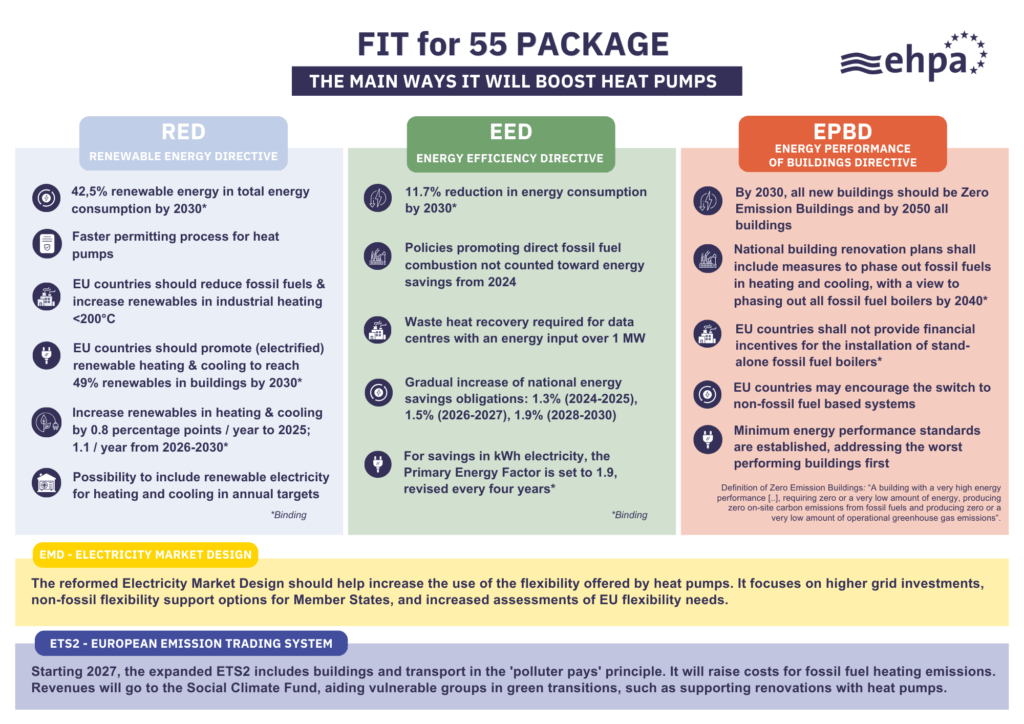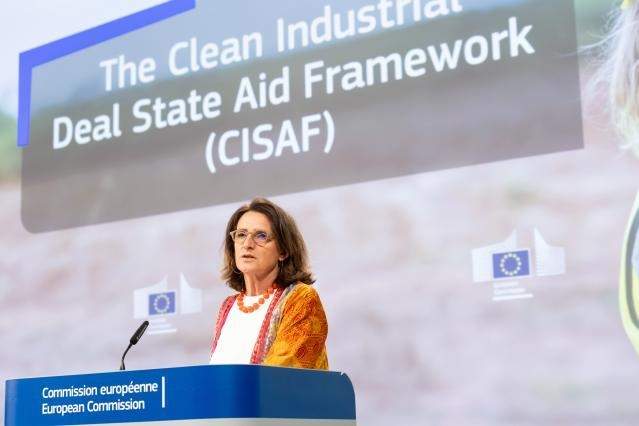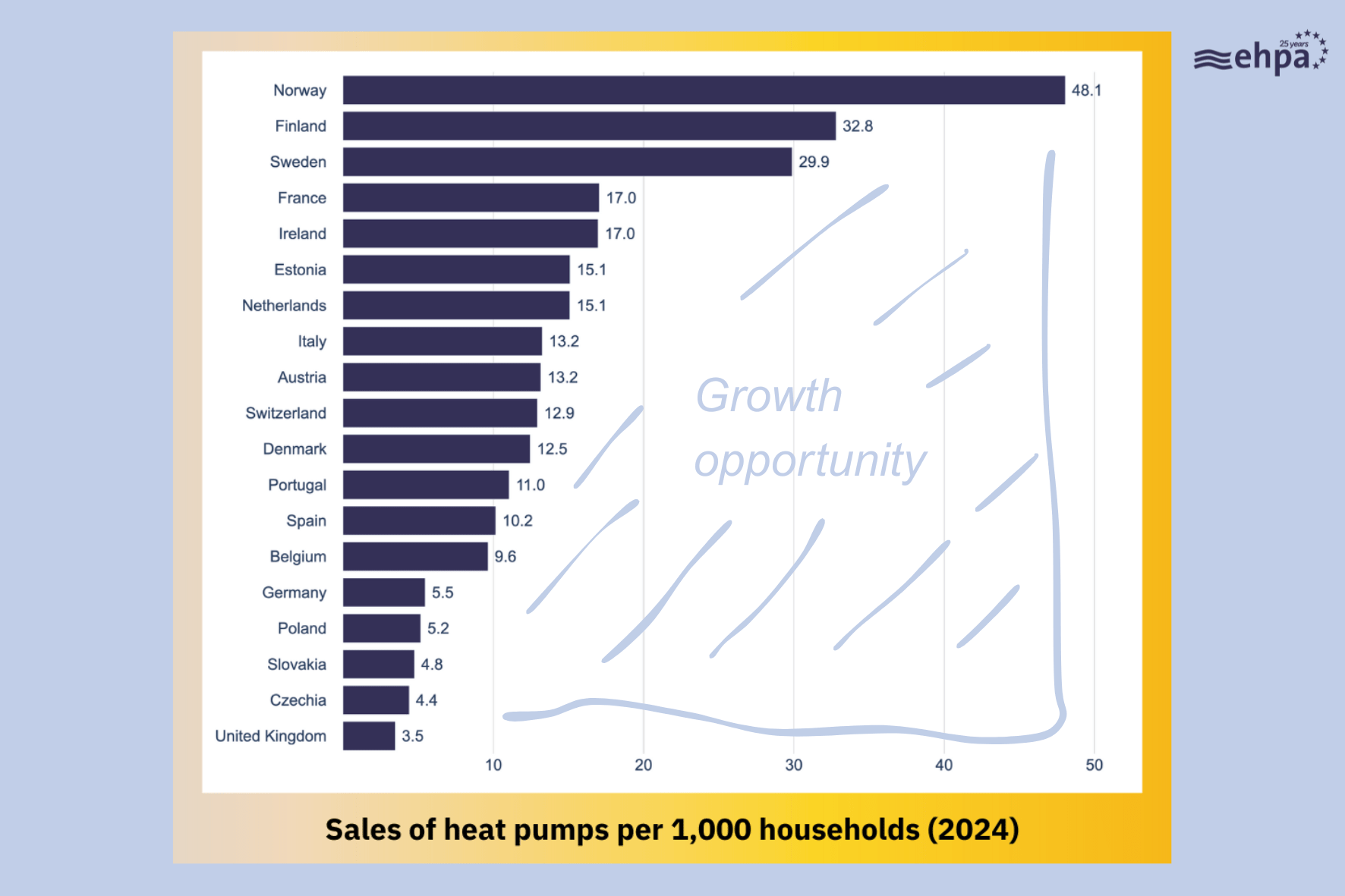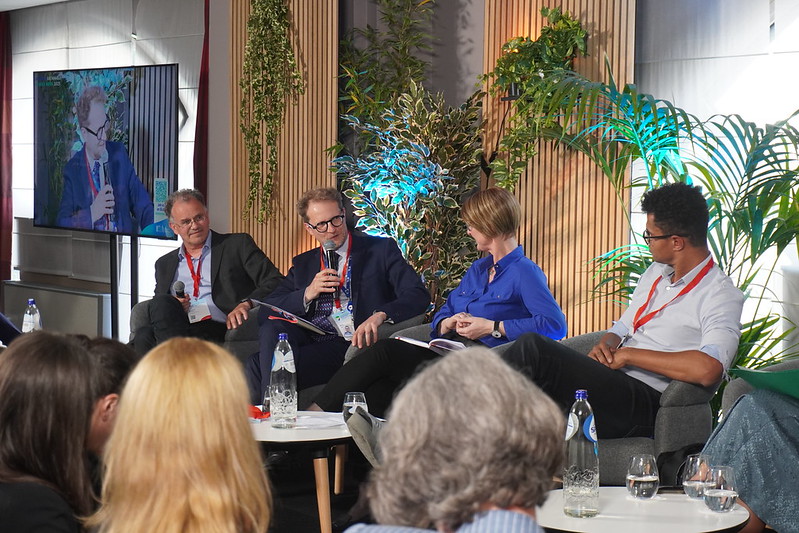
Fit for 55 package
The ‘Fit for 55%’ legislative package was published by the European Commission in 2021.
The ‘55’ refers to the EU’s increased 55% net emissions reduction target for 2030.
The aim of the package was to update the EU’s 2030 climate and energy laws to reflect this higher target.
Several of the files are crucial for heat pumps.
What does EHPA support? EHPA is in favour of ambitious renovation strategies and a 2050 vision towards a decarbonised building stock to achieve a 100% emission free heating and cooling sector by 2050.
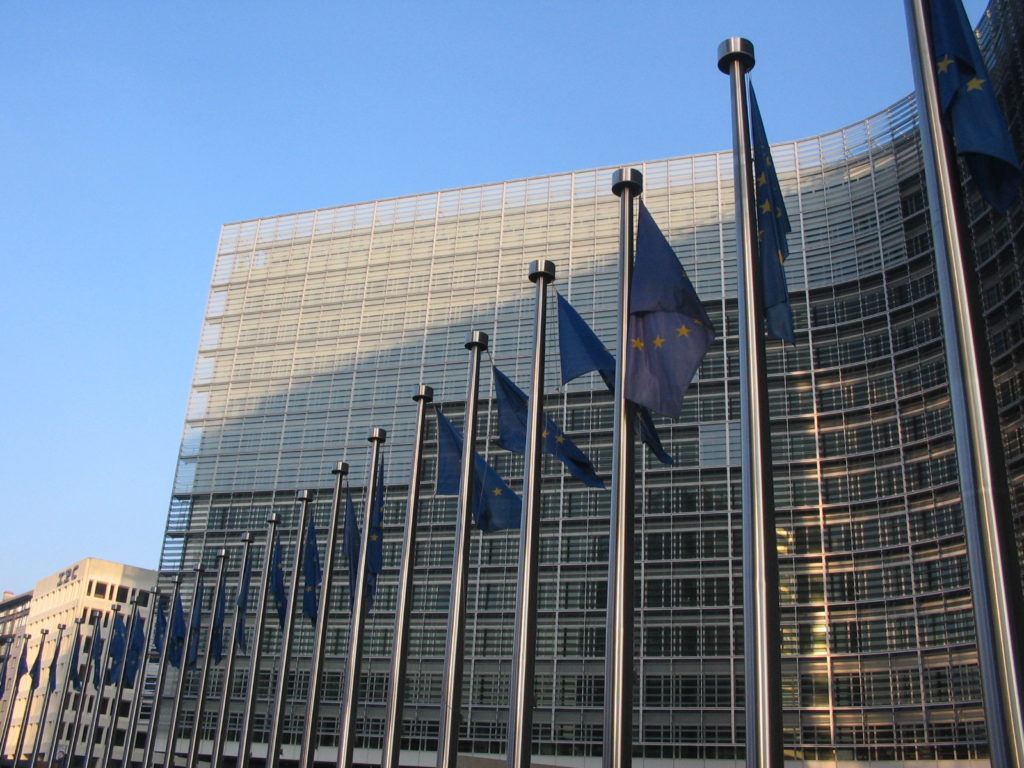
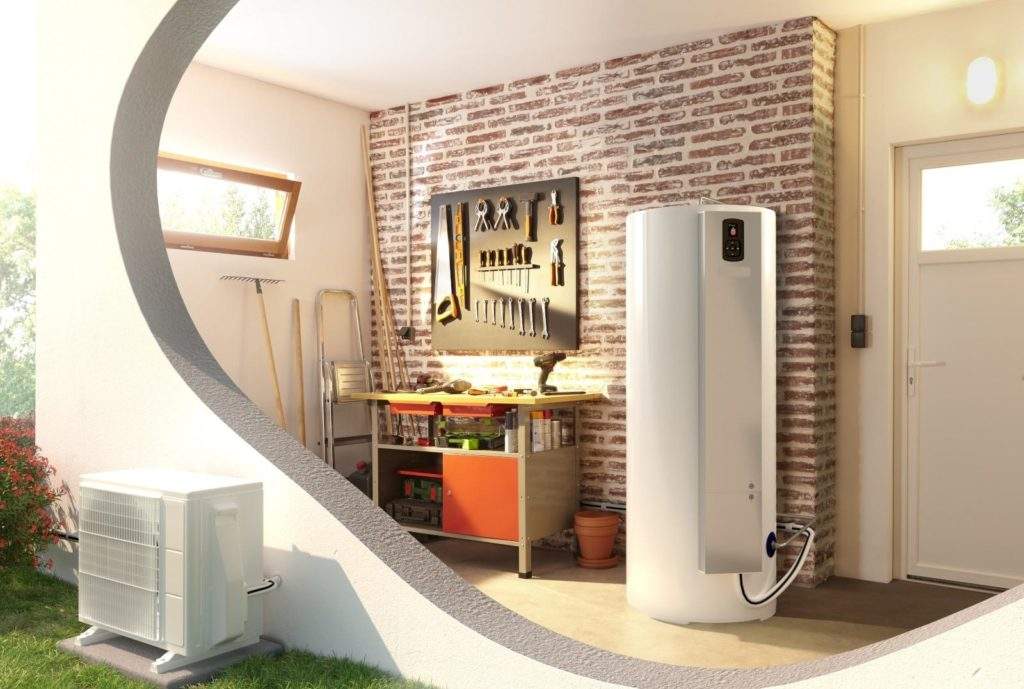
The Energy Performance of Buildings Directive (EPBD) aims to reduce the energy consumption of buildings, which account for 40% of EU energy use. In 2021, the Commission proposed a revised Directive. The Council adopted its position in October 2022, and the European Parliament on March 2023. In December 2023, EU-negotiators reached a provisional agreement.
The agreement mandates the phase out fossil fuel boilers in all buildings by 2040, zero emissions from fossil fuels for all new buildings by 2030, and for all buildings by 2050.
The deal also establishes minimum energy performance standards (MEPS) which will apply to the worst performing buildings first. This is an important step to make sure all buildings are heat pump ready.
In addition, renovating poorly insulated buildings first will provide healthier and more comfortable homes to the most vulnerable households. As agreed in the deal, one-stop shops should be established to support consumers with adequate technology solutions and quality installations.
EHPA welcomes and supports the EPBD deal as an important step towards the decarbonisation of buildings.
The EU Commission published a ‘Renovation Wave’ initiative in October 2021. It aims to make renovation a priority by addressing efficiency and affordability, the electrification of buildings and carbon pricing for heat and energy taxation. The target is to double annual energy renovation rates over ten years and to renovate the EU’s ‘worst’ 35 million buildings by 2030.
EHPA is calling for a 2050 vision towards a decarbonised building stock, with a stronger focus on the smart readiness of buildings, and financial tools to promote a green and digital transition.

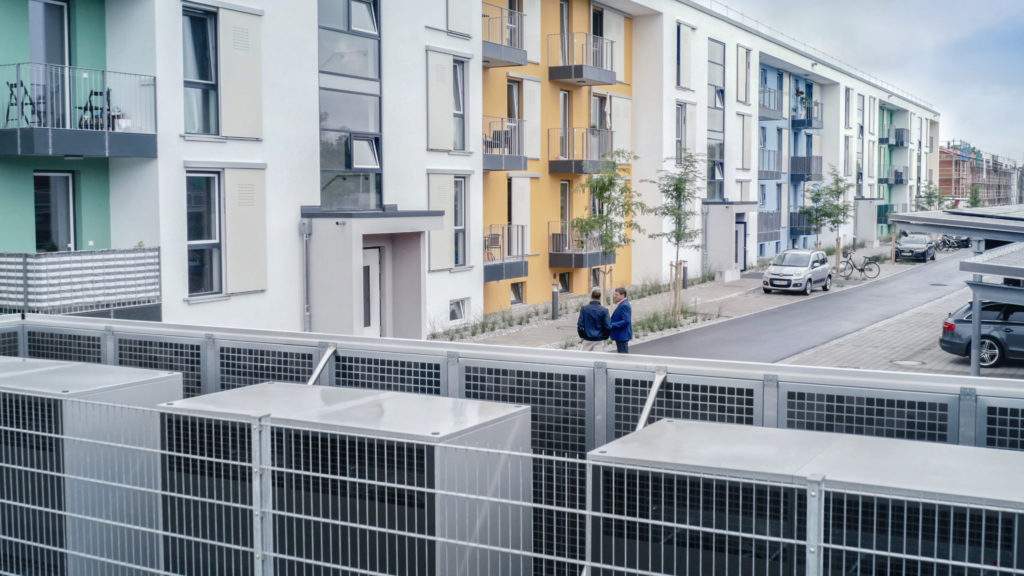
To help the EU achieve its climate goals, the EU Emissions Trading System, which puts a price on carbon emissions, was expanded in 2023 to cover and address the CO2 emissions from fuel combustion in buildings, road transport and additional sectors.
The EU’s expansion of the European emission trading system (ETS 2) will extend the “polluter pays” principle to buildings and transport from 2027.
Putting a price on emissions from fossil fuels used for heating will make them more expensive. Revenues will finance the Social Climate Fund, helping vulnerable groups in the green transition – for instance, by supporting home renovations with heat pumps.
In 2018, the Revised Renewable Energy Directive set a 32% renewable energy target for 2030. Recognising the need to accelerate the EU’s clean energy transition, the Renewable Energy Directive was revised in 2023 and entered into force the same year, in November.
The new binding renewable energy target for 2030 has been increased to at least 42.5%, with the goal of reaching 45%.
The revised Directive introduces sector-specific targets for accelerating the integration of renewable energy in key areas such as transport, industry and buildings as well as district heating and cooling. Regarding buildings, the new rules establish an indicative target of a minimum 49% renewable energy share by 2030.
Additionally, there will be gradual increases in using renewable energy for heating and cooling, with a yearly increase of 0.8% until 2026 and 1.1% from 2026 to 2030.
EHPA supports a 45% overall renewable energy target and increased targets for renewables in heating and cooling in buildings.


In July 2021, the European Commission put forward a proposal for a new Directive on Energy Efficiency. Part of the REPowerEU plan, an agreement on the revised Directive was reached in July 2023 and entered into force in October 2023.
The 2023 Revised Directive increases the EU energy efficiency target, requiring EU countries to collectively ensure an additional 11.7% reduction in energy consumption by 2030 compared to the 2020 Reference Scenario projections.
The annual energy savings for final energy consumption will gradually increase from 1.49% in 2024 to 1.9% in 2030. In addition,energy savings resulting from policies that encourage direct fossil fuel combustion in several sectors are excluded.
The Revised Directive also mandates that data centres with a total rated energy input exceeding 1 MW must use waste heat or other waste heat recovery applications. Furthermore, it mentions heat pumps as a relevant technology for the assessment of national heating and cooling potentials.
EHPA supports the new energy efficiency target and welcomes the fact that, for the first time, it is binding. This is an important step towards achieving the EU’s climate goals and reducing greenhouse gas emissions.
EHPA also supports the specific provisions that promote efficiency in heating and cooling.
